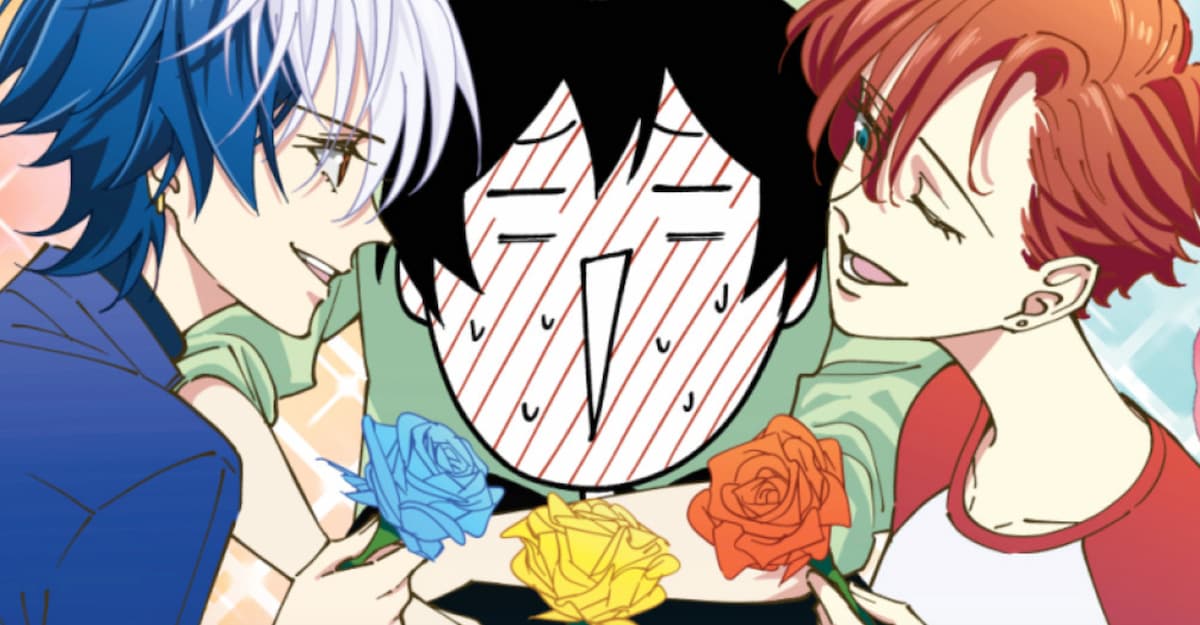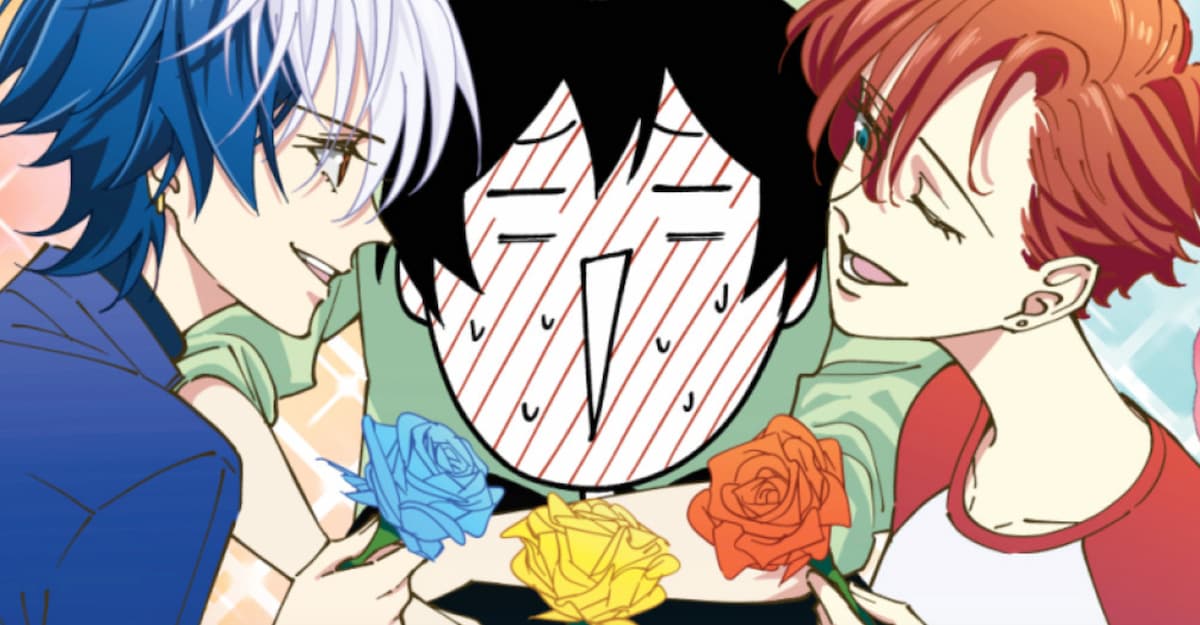
You might think that February 14, 2023, was primarily notable for being Valentine’s Day. You would be wrong. It was, in fact, primarily notable for being the day that Viz released the fully-formed, physical-book version of Mieri Hiranishi’s excellent yuri series, The Girl That Can’t Get A Girlfriend.
I don’t care what your sexual preferences are, what your gender identity is, where you’re from, what your background is, if you’re an otaku or not, if you normally read manga or not—none of it. If you have ever suffered heartbreak and/or have ever identified as an awkward person, you will enjoy this book. I say this assuming it covers the vast majority of people.
The Girl That Can’t Get A Girlfriend is an autobiographical journey through one woman’s unrequited quest for love. There are times when it’s laugh-out-loud funny, and there are times when it stabs you right in the heart. The book is able to hit, and hit hard, because it’s so beautifully sincere and earnest. Hiranishi is putting herself entirely on the page. In doing so, she becomes one of the most relatable figures in manga I’ve come across in a long time.
Plus, in Hiranishi’s own words, she’s drawing these beautiful butch lesbians “for the sake of world peace.” Truly, a service for humanity.
For the unconfident among us
Hiranishi’s on-page version of herself sticks out from her environment. Hiranishi is a gifted mangaka. The women she falls in love with are drawn beautifully, with so much detail. Hiranishi’s narrative self, on the other hand, is simplistic and cartoony. The obvious stylistic difference makes it very clear that the narrator sees herself as someone who doesn’t fit in with her surroundings. She has low self-esteem. She’s awkward. She wonders why this basic human phenomenon—being in a relationship, going between them, moving forward from them—seems to work out so well for other people, but remain so elusive to her.
“Why does everyone else seem to have figured out this thing? Am I the only person who hasn’t figured it out?” In the era of social media and dating apps, it’s so easy to feel this way. Add to that the classic, “If I can only do this, then X will finally happen!” feeling which marks not only the desperate nature of unrequited love, but a desperate quest for happiness.
The Girl That Can’t Get A Girlfriend touches on all these questions. Those of us cursed with a lack of confidence or who are still finding our best selves have grappled with them at one point or another—if we’re not grappling with them now.
That makes it all the more sweeter that The Girl Who Can’t Get A Girlfriend ends in a success story, using all the sincerity with which it began. In fact, it ends in the book you’re currently reading. After spending so much time struggling, Hiranishi is able to find confidence. She starts “working for the approval of [her]self.”
The fact that we have watched her struggle, and that writing this very book was part of that process, saves this happy ending from being unbelievable or corny. It’s empowering. Even more so because Hiranishi is very clear about not being able to make a living as a mangaka. She’s an office worker. She has a day job. She needs a Patreon to keep her creative life afloat. She’s trying to balance her life, just like so many of us are.
How many times can I say “relatable”?
The specificity of some of Hiranishi’s narrative arrows pierced my heart. I’m sure there will be ones which will pierce yours as well. I know the relatability isn’t specific to me. Hell, I gave the book to my cis-gendered male partner, and he also fell in love with the book and related to Hiranishi. (Hiranishi maintains her relatability on YouTube and social media as well, as seen in the video above.)
Relatability case in point: a panel towards the beginning of the story, when Hiranishi is describing her college self having her first girl-crush. “No one I’d ever had a crush on before liked me back,” she writes. “That probably wouldn’t magically change now that I liked a girl.” There are arrows pointing to a drawing of herself: “Awkward otaku. Same clothes from middle school. Virgin. Useless at team sports.” With a few minor tweaks, this panel describes my freshman-college self perfectly. “Same clothes from middle school” especially stings. (I’m 31, and I still have a few dresses and jackets which I’ve had since the sixth grade. I’m cool, okay?)
There is something about how Hiranishi lays her emotions on the page which feels universal. Even if you don’t relate to the specifics of her experiences, you relate to the emotions behind her responses. Making a shallow attempt to “change yourself” to attract someone. Feeling like someone can’t possibly like you as much as you like them. Trying someone you would never usually date in a desperate attempt at a comeback. (In Hiranishi’s case, she attempts to date men, and since you know she knows she’s attracted to women, it hurts.) The impulses behind all of these situations gets at basic human responses.
My point is this. Every blue moon, a book or film or show comes out that a wide swath of people can grasp and say, “That’s me. I feel this.” I deeply believe we have found the 2023 version of that in The Girl That Can’t Get A Girlfriend. Also, I should probably buy a new jacket.
(Featured image: Mieri Hiranishi / Viz Media)
Have a tip we should know? [email protected]
